Understanding Stress Coping Strategies in Psychology
VerifiedAdded on 2020/04/01
|6
|962
|289
Essay
AI Summary
The article by Orzechowska et al. (2013) investigates how individuals cope with stress, which is a significant factor leading to depression and other health issues. The study involved surveying 80 patients aged between 22 and 60, aiming to understand how dealing with stress influences depression levels. Stress can lead to negative attitudes, reduced understanding, harsh behaviors, and even mental disorders if not managed properly. According to the cognitive transactional model, overcoming stress involves modifying one's behavior in response to life's demands, often requiring a positive environment to be effective. The research identified 15 strategies that could aid in reducing stress, including active coping, seeking social support, and positive reinterpretation. However, some methods like reliance on anti-depressant pills can be counterproductive by lowering nerve capacity over time. Men and women exhibit different stress-coping behaviors, with men potentially increasing smoking or drinking as a response. Effective stress management is crucial for maintaining mental and physical health, allowing individuals to lead stress-free lives despite everyday challenges.
1 out of 6
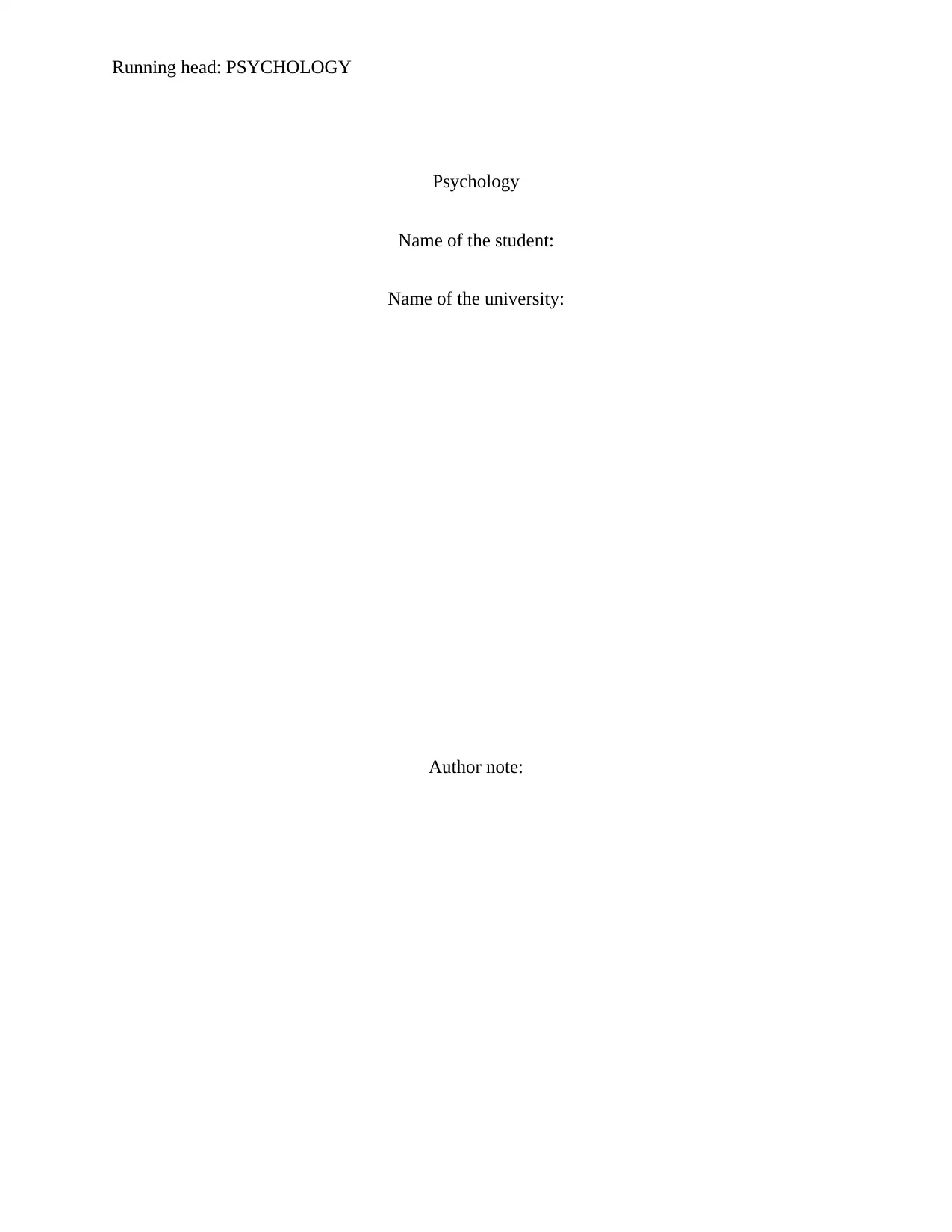
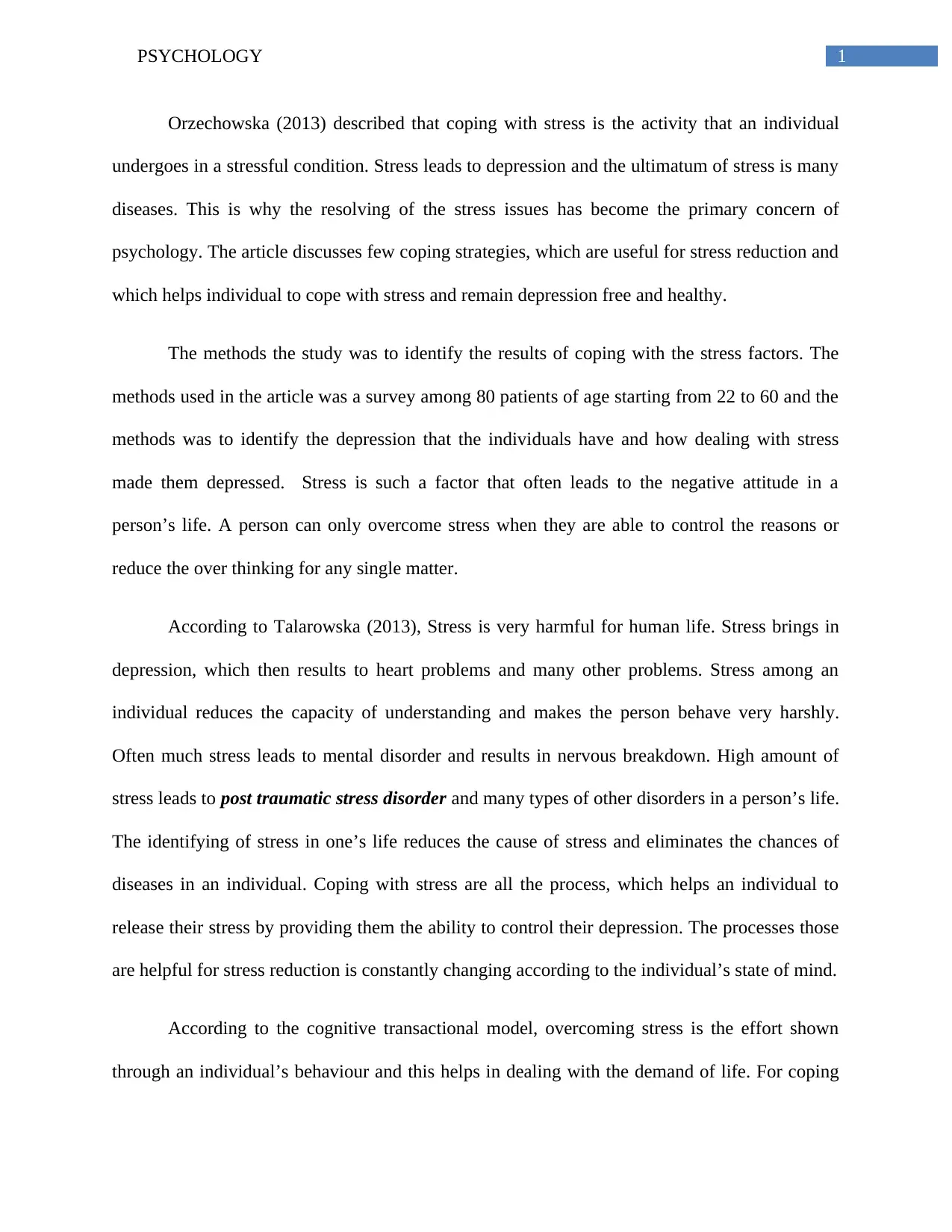
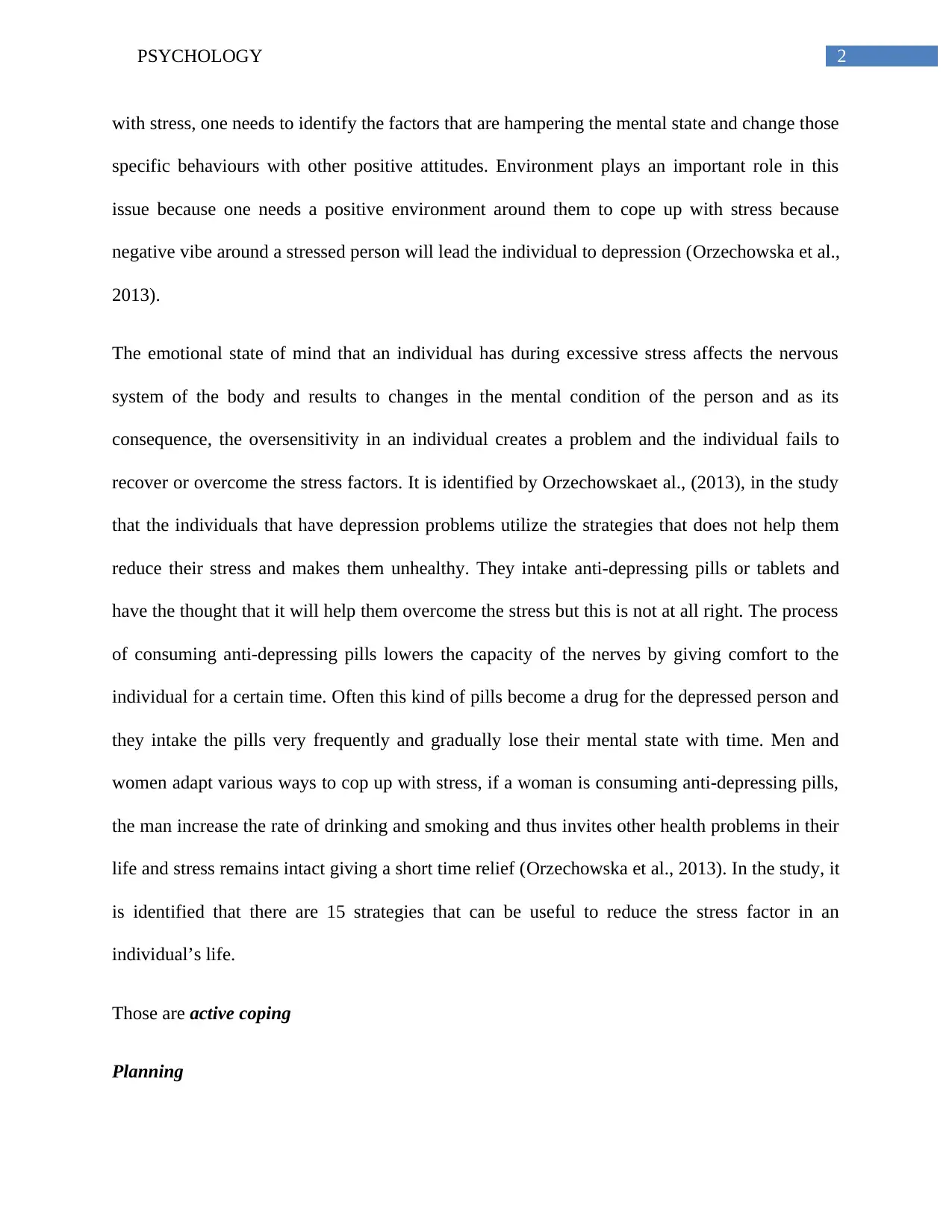

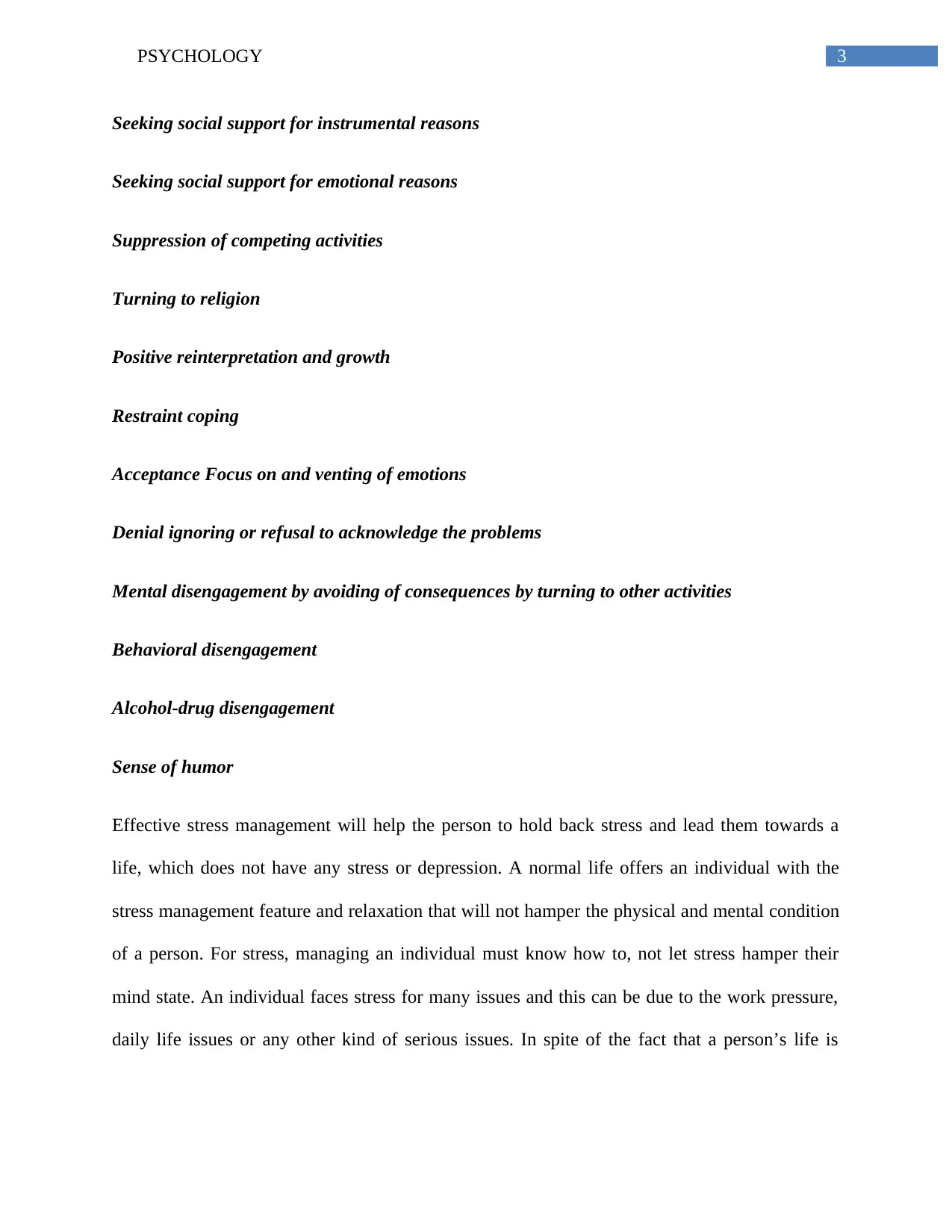

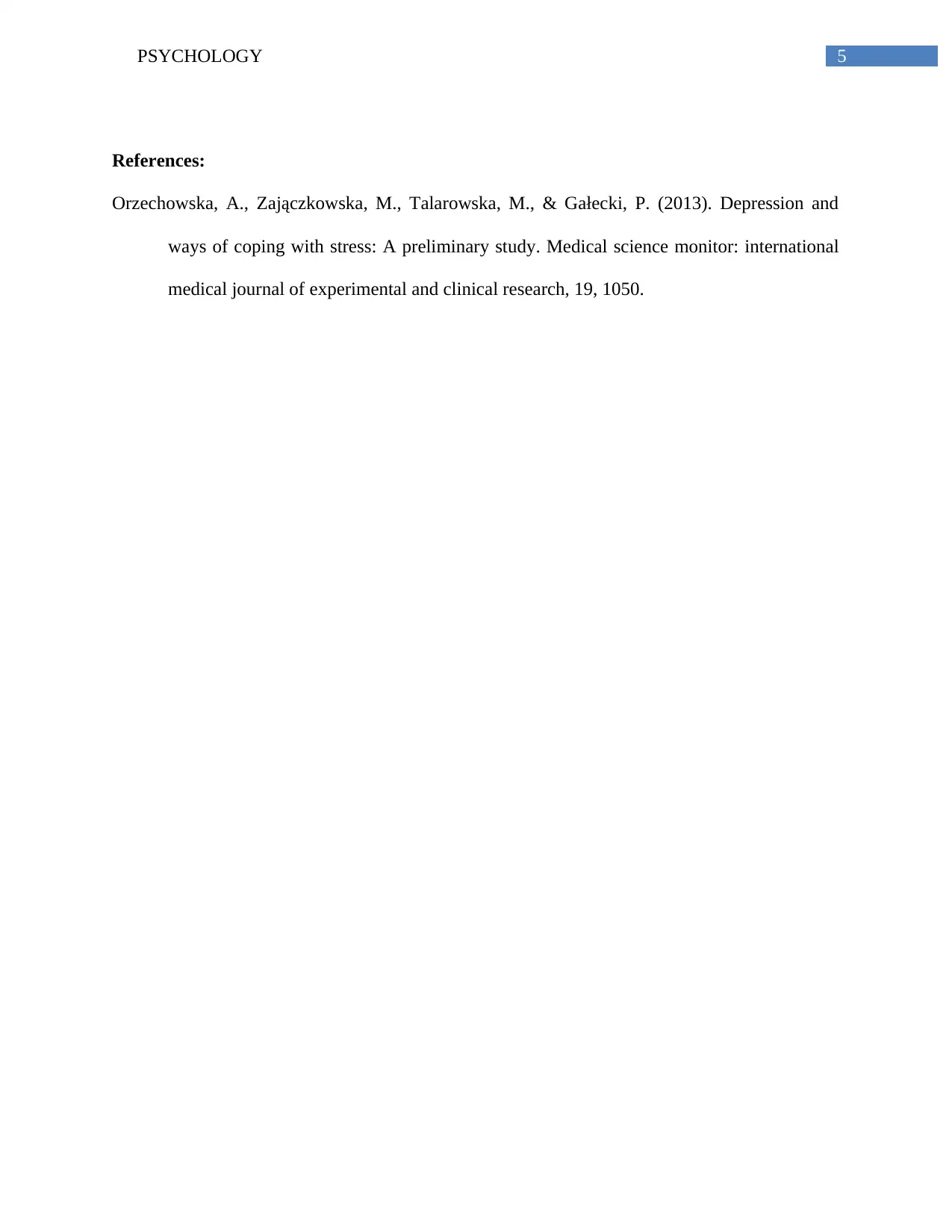






![[object Object]](/_next/static/media/star-bottom.7253800d.svg)